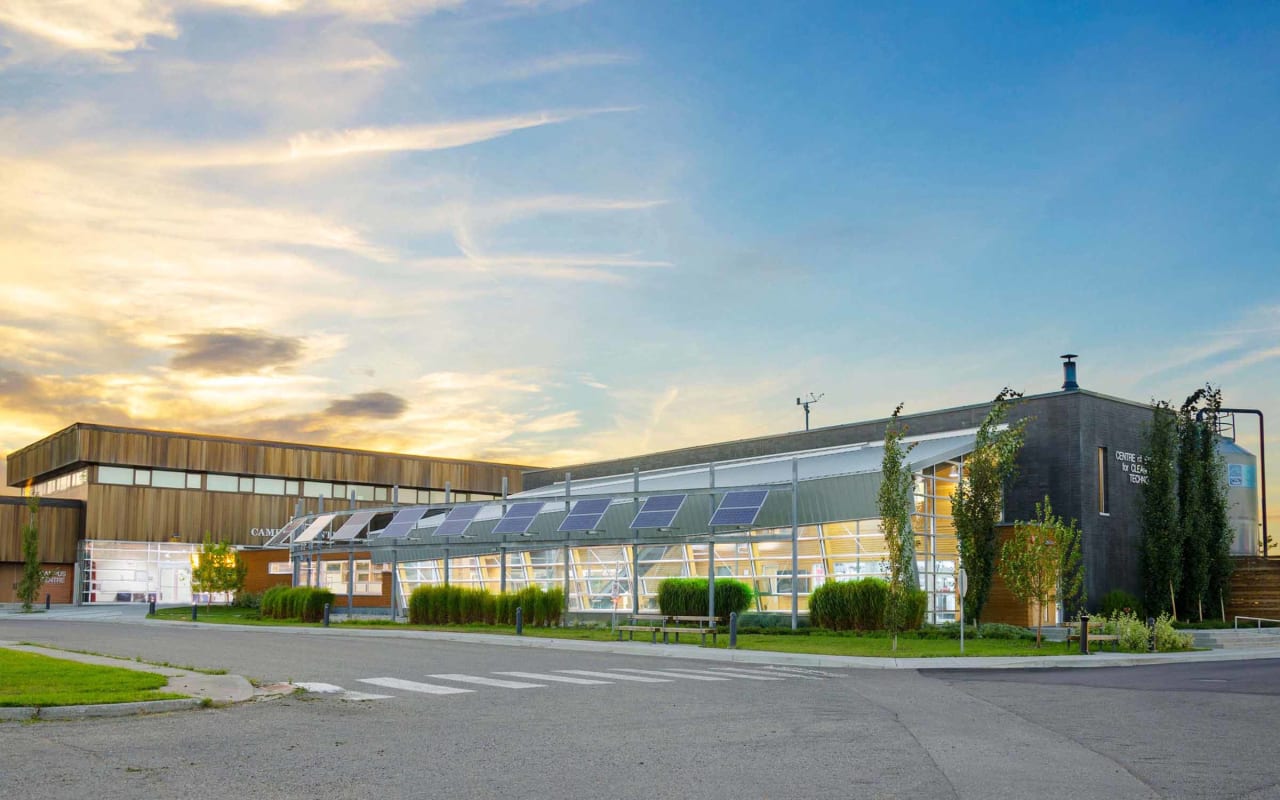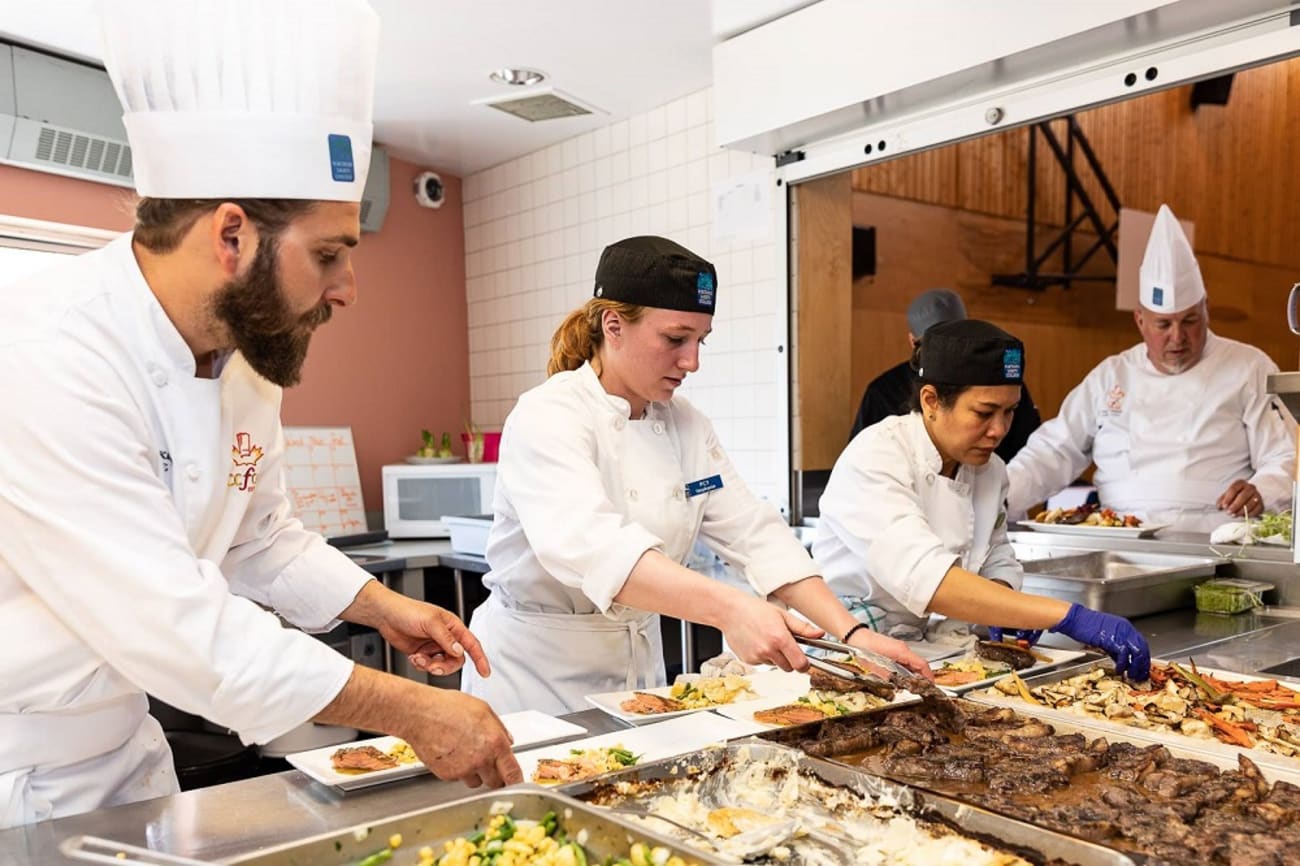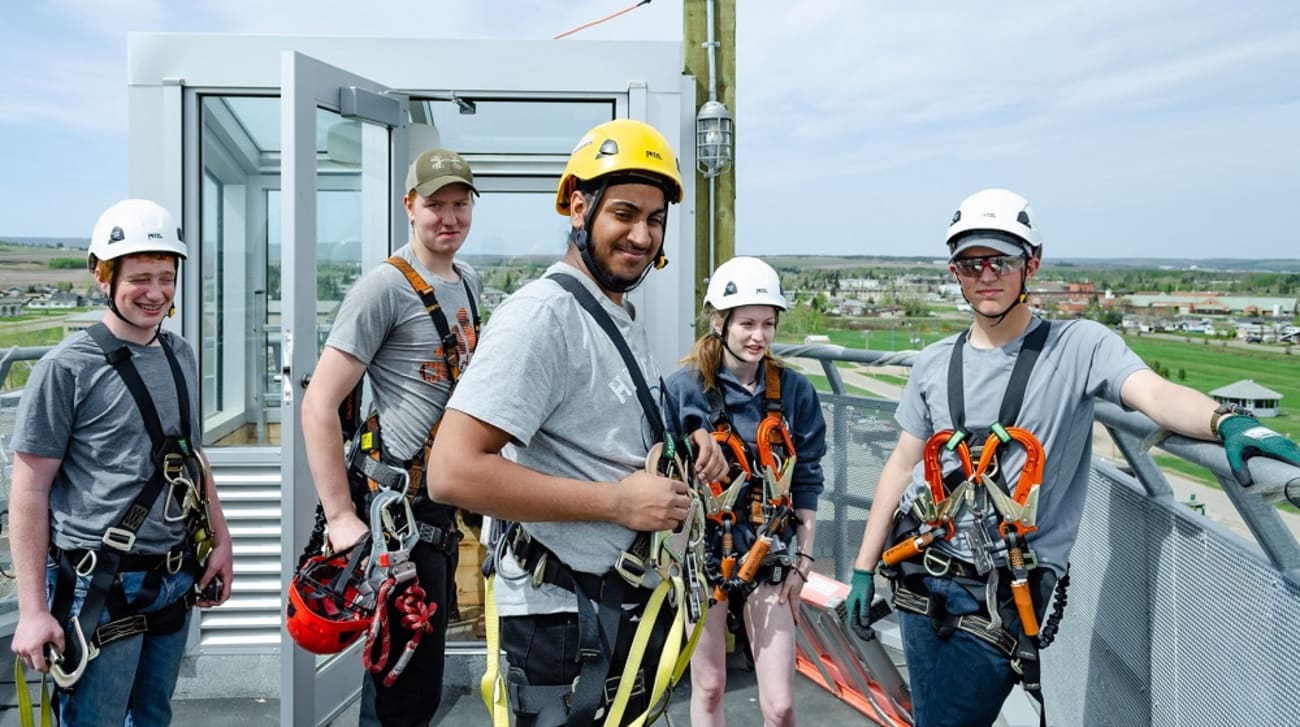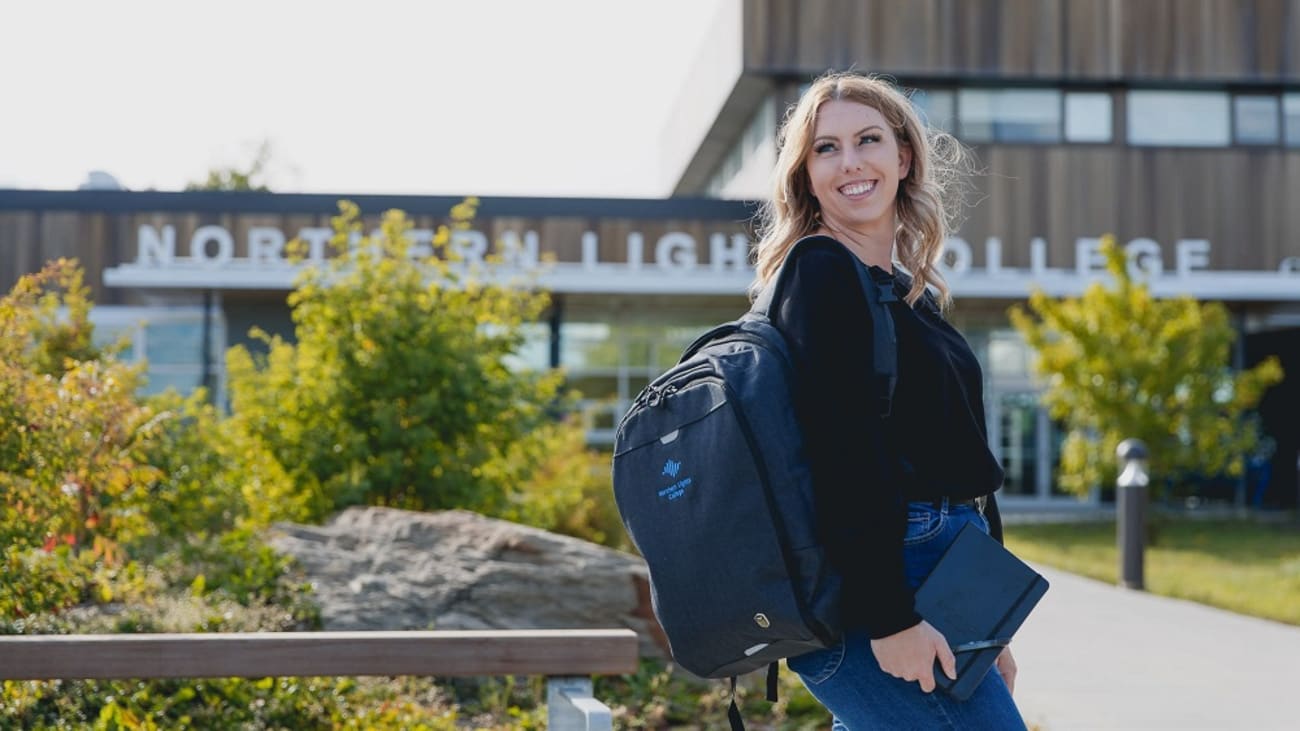Atlin Campus
Atlin is a small isolated community in the Northwest corner of British Columbia.
Glacial-fed Atlin Lake is 4 miles wide and 85 miles long, in a wide wilderness valley surrounded by snowcapped mountains. Atlin is an approximately 3-hour drive distance away from Whitehorse Yukon or Skagway Alaska.
We offer a wide range of highly interactive courses that you can take entirely over the Internet. All of our courses are led by expert instructors, many of whom are nationally known authors. Our online courses are affordable, fun, fast, convenient, and geared just for you.
Chetwynd Campus
The District of Chetwynd is located in the beautiful foothills of the Rocky Mountains, approximately an hour west of Dawson Creek, and three hours north of Prince George. Chetwynd has a population of 3,100 and serves a drawing area of about 7,000 residents.
Chetwynd came into existence during construction through the Rocky Mountains in the 1950s and was used as a shipping point during the construction of hydroelectric dams in the 1960s and 1970s. Once known as Little Prairie, the community adopted its current name in honor of provincial politician Ralph L.T. Chetwynd in 1962.
NLC’s Chetwynd Campus supports full- and part-time students in programs such as Career and College Preparation, University Arts and Sciences, Trades and Apprenticeship, and Workforce Training/Continuing Education.
Many of these programs have been designed for the regional job market or to provide residents with the foundation they need to continue their post-secondary education.
The Chetwynd Campus features a dedicated group of staff members, committed to helping learners achieve their goals. Opportunities exist for in-class learning in a number of areas, as well as distance education for access to programs offered at other locations.
Campus services available to students include Aboriginal Advisor services, bookstore, daycare, computer/Internet access, financial aid, and recruiting. Library services are available through the Dawson Creek Campus library.
Dawson Creek Campus
The City of Dawson Creek, or the Mile Zero City, is the starting point on the world-famous Alaska Highway and is the largest center in the Peace River South region. Dawson Creek has a population of about 12,000 and celebrated its 50th anniversary in 2008.
The City is home to the new South Peace Community Multiplex, which features the Encana Events Centre, and has become well known provincially and nationally for its environmental awareness, receiving several awards for innovation and best practices in the areas of sustainability and innovation.
The Dawson Creek Campus was the original location for NLC, having originally housed the B.C. Vocational School from 1966-1975. NLC was created in 1975 by a provincial government Order-in-Council.
The Dawson Creek Campus is home to the Aircraft Maintenance Engineering program, which is part of the Trades and Apprenticeship Division.
A number of trades and apprenticeship programs are available at the Dawson Creek Campus, with some programs also offered at the College’s South Peace Campus. Trades and Apprenticeship programs offered in Dawson Creek include Automotive Service Technician, Carpentry, Heavy Duty Technician, Esthetics and Nail Care Technology, Hairstyling, Millwright, Plumbing, and Welding.
University Arts and Sciences courses are available leading to a University Arts and Sciences Certificate, an Associate of Arts Degree, or further post-secondary studies. Delivery models include in-class sessions, as well as a videoconference.
Vocational programs include Wind Turbine Maintenance Technician, Visual Arts, Practical Nursing, Health Care Assistant, and Applied Business Technology.
The NLC training tower located on the Dawson Creek Campus is used for high-angle rescue training and for hands-on class training for the Wind Turbine Maintenance Technician program.
The Career and College Preparation department helps students upgrade toward gaining admission into another academic or vocational program at NLC or complete grade 12 diploma requirements.
A wide array of Workforce Training/ Continuing Education courses are offered for short-term study, upgrading and certification.
The Dawson Creek Campus includes Aboriginal Education services, Student Recruitment, on-site student residence, library, gymnasium, daycare facility, bookstore, financial aid, and access to city transit.
As well, NLC’s Regional Administration is located at the Dawson Creek Campus.
Dease Lake Campus
Dease Lake is located in northern BC, on Highway 37 (Stewart-Cassiar Highway) 272 kilometers south of Watson Lake, Yukon, and 600 kilometers north of Terrace, BC.
The community offers a complete range of services and is home to several provincial government offices, including B.C. School District 87. The population is 650 full-time residents.
Dease Lake was established around 1839 and was once a Hudson Bay Company Trading Post. The town got its name from the chief factor of the Hudson Bay Company, Peter Warren Dease. Dease Lake was a hub of activity when the Cassiar gold rush erupted in 1872. And, in 1941, Dease Lake was a transportation hub for supplies headed for the troops that were building the Alaska Highway.
We offer a wide range of highly interactive courses that you can take entirely over the Internet. All of our courses are led by expert instructors, many of whom are nationally known authors. Our online courses are affordable, fun, fast, convenient, and geared just for you.
Fort Nelson Campus
The Town of Fort Nelson is the largest center in the Northern Rockies Regional District, with a population of about 4,700. Fort Nelson is located at Mile 300 on the Alaska Highway and is the major service hub in northern B.C. between Fort St. John and the Yukon Territory.
Fort Nelson was established as a trading post in 1805 by the Northwest Fur Trading Company and was named after British Admiral Lord Horatio Nelson. The current town location is actually the fifth site of Fort Nelson with the first location originally about 40 miles west.
Fort Nelson’s growth was spurred by the establishment of an airport as part of the Northwest Air Staging Route in 1941 and the construction of the Alaska Highway in 1942.
The Fort Nelson Campus began to offer programming in 1976. Currently, Fort Nelson is NLC’s third-largest campus, providing a wide range of facilities and services to students and local residents.
Programming available at the Fort Nelson Campus includes Career and College Preparation, University Arts and Sciences, Applied Business Technology, and certain Trades and Apprenticeship programs offered periodically in partnership with local industry. Programming is delivered in-class and via videoconference.
The Workforce Training/Continuing Education department also offers a large number of courses that allow students to obtain safety and other certification needed to work in the oil and gas or other industries.
Campus services include Aboriginal Advisor services, a library, bookstore, computer/Internet access, and financial aid.
Fort St. John Campus
The City of Fort St. John is known as the Energetic City, because of its location in the heart of the oil and gas industry in northeastern B.C. Fort St. John is located at Mile 47 of the Alaska Highway, has a population of approximately 18,000, and serves a drawing area of about 60,000 people.
Originally established in 1794 as a trading post, Fort St. John is the oldest European-established settlement in present-day British Columbia. Fort St. John is the largest center in the Peace River North region and a transportation hub for the Peace. In addition to oil and gas, forestry and agriculture are important elements of the area economy
Fort St. John is home to the Pomeroy Sports Centre, which houses two ice pads, a speed skating oval, and an indoor walking track. As well, a new hospital has recently been constructed.
The Fort St. John Campus is located on the north edge of the city, adjacent to the scenic Fish Creek Park and Community Forest. The campus serves more than 1,800 students each year, enrolled in a variety of programming.
In 2007, the Jim Kassen Industry Training Centre opened on the Fort St. John Campus. The building provides new facilities for a number of Trades, Apprenticeship, and Technology programs, and is also the home to the provincial Centre of Training Excellence in Oil and Gas. The Centre of Excellence is designed to develop provincial guidelines to ensure the training of workers for the oil and gas industry.
Trades and Apprenticeship programs available in Fort St. John include Automotive Service Technician, Commercial Transport/Heavy Duty Technician, Electrician, Industrial Instrumentation Mechanic, Oil and Gas Field Operator, and Power Engineering and Gas Processing.
Students can also start towards achieving a university degree by completing first year University Arts and Sciences courses. NLC has credit transfer agreements with a number of post-secondary institutions in B.C.
Vocational and diploma programs include Business Management, Early Childhood Education and Care, Social Services Worker, Education Assistant, and Applied Business Technology.
Workforce Training/ Continuing Education department offers a wide assortment of general interest and employment-related courses in safety, first aid, oil and gas, computer training, and other areas.
The Fort St. John Campus is home to NLC’s International Education department. Students from around the world enroll at NLC to learn English before moving to other NLC programming or continuing their education at other post-secondary institutions.
Campus services include financial aid, Access Services, Aboriginal Services Advisor, library, cafeteria, daycare, computer/ Internet access, bookstore, and access to city transit. A special feature of the campus is the Atrium, which includes trees, plants, and a pool containing exotic fish.
Tumbler Ridge Campus
The District of Tumbler Ridge is Canada's youngest community, established in 1981 as a coal mining community.
Tumbler Ridge was recently designated a Unesco Global Geopark, which celebrates the natural geological history of the area that is rich with dinosaur fossils and trackways, waterfalls, caves, and mountain lakes. A world-renowned paleontological research center operates from Tumbler Ridge.
Tumbler Ridge is located 90 kilometers from Chetwynd, and 125 kilometers southwest of Dawson Creek. Tumbler Ridge amenities include a hockey arena, curling club, indoor aquatic center, and community center.
- The Tumbler Ridge Campus is located in the northeast wing of Tumbler Ridge Secondary School.
The campus provides area residents with opportunities to upgrade their training or education through Career and College Preparation courses, or Workforce Training/Continuing Education. Workforce Training courses offered in Tumbler Ridge include first aid, Bear Aware, CORE Hunter Safety, and many others.
We offer a wide range of highly interactive courses that you can take entirely over the Internet. All of our courses are led by expert instructors, many of whom are nationally known authors. Our online courses are affordable, fun, fast, convenient, and geared just for you.
Campus services include a library and computer/Internet access.
















